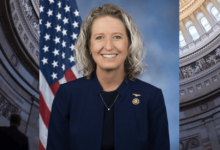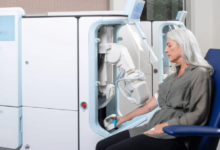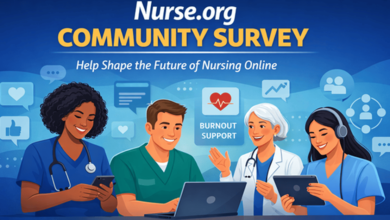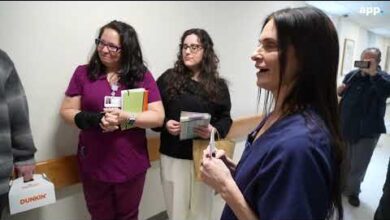Nurse Preceptors Could Get a $2,000 Tax Credit, If This Bill Passes

In a bold move to improve nurse staffing levels in the United States, Representative Jennifer Kiggans has introduced the PRECEPT Nurses Act, a bipartisan legislation that proposes significant incentives for experienced nurses to take on mentorship roles. This initiative comes at a crucial time when the healthcare industry is grappling with workforce challenges and seeks to improve patient care while creating professional development opportunities for nurses.
Congresswoman Jen Kiggans emphasized the importance of this initiative: “As a geriatric nurse practitioner, I have seen how staffing shortages negatively impact patients firsthand and know how important it is for our nurses to have access to the proper training they deserve. By creating more opportunities for both existing nurses and nursing students, we can provide better, more reliable care to America’s patients while preventing burnout in our healthcare workforce.”
At the heart of the PRECEPT Nurses Act is a $2,000 tax credit for nurses who serve as clinical preceptors for nursing students in health professional shortage areas. This financial incentive is designed to encourage seasoned nurses to dedicate their time and expertise to training the next generation of healthcare professionals.
If approved, the bill would launch a seven-year pilot program supporting nurse preceptors who mentor newly hired nurses (those within their first six months of employment), nursing students, and APRN students. To qualify for the tax credit, preceptors must meet specific criteria, including:
- Proof of certification
- Completing at least 200 hours of mentorship in designated health professional shortage areas, as outlined by the Public Health Service Act
By implementing these standards, the legislation ensures that mentorship remains structured, effective, and beneficial for both the preceptors and those they train.
The tax credit is set to expire on December 31, 2032, allowing a structured period to evaluate its impact on staffing issues and make adjustments if necessary.
Addressing Nurse Staffing Issues and Nursing Education Bottlenecks
The PRECEPT Nurses Act is part of a broader strategy to improve staffing ratios and ensure a strong nursing workforce in the United States. By incentivizing experienced nurses to take on preceptor roles, the legislation aims to achieve several key objectives:
- Increase the number of qualified nurse educators
- Expand clinical placements to accommodate more nursing students
- Improve patient care through better-prepared nursing graduates
- Prevent healthcare worker burnout by creating a supportive mentorship environment
- Offer professional development opportunities for experienced nurses
One of the primary issues this legislation addresses is the bottleneck in nursing education. Many nursing schools are forced to turn away qualified applicants due to a lack of available clinical placements and faculty shortages. By increasing the number of preceptors, this act could help expand nursing school capacity, ultimately leading to more nurses entering the workforce.
Support from Professional Organizations and Bipartisan Backing
The PRECEPT Nurses Act has garnered support from various professional nursing organizations, including the American Nurses Association and the American Association of Nurse Anesthesiology. This backing from industry experts lends credibility to the proposed legislation and highlights its importance in addressing current healthcare challenges.
Moreover, the bipartisan nature of the bill demonstrates a unified approach to improving staffing ratios and supporting the nursing workforce. This cross-party support increases the likelihood of the legislation moving forward and potentially becoming law.
The introduction of the PRECEPT Nurses Act represents a significant step toward addressing the complex challenges facing nurse staffing and education. As the healthcare landscape continues to evolve, initiatives like this will play a crucial role in shaping the future of nursing education and practice.
🤔 Nurses, share your thoughts in the discussion forum below.
If you have a nursing news story that deserves to be heard, we want to amplify it to our massive community of millions of nurses! Get your story in front of Nurse.org Editors now – click here to fill out our quick submission form today!







